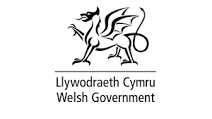The press release issued by the Welsh Government on 20 January 2023.
A project to help Welsh mothers in prison maintain positive relationships with their children has had further funding confirmed.
Mick Antoniw, Counsel General and Minister for the Constitution, and Jane Hutt, Minister for Social Justice, visited HMP Eastwood Park in Gloucestershire to speak to frontline staff and people involved in the ‘Visiting Mum’ service.
‘Visiting Mum’, delivered by Pact (the Prison Advice & Care Trust), runs from HMP Styal in Cheshire as well as HMP Eastwood Park in Gloucestershire – the two most common locations for women in Wales being sent to prison. The service is designed to provide benefits for both mothers and their children.
As there are no prisons for women in Wales women serve custodial sentences in England, often at a considerable distance from their homes and families. ‘Visiting Mum’ helps strengthen family ties by facilitating closer contact between mothers and children.
Around half of women in prison are mothers, and the service identifies women who are at risk of losing contact with their children and offers specialist support. It then arranges visits, offers parenting and relationship programmes, offers transport to children, and provides ‘wraparound care’ for children after their visit.
An evaluation of the project found it was improving wellbeing among mothers and reducing the risk of self-harm, while also improving long-term outcomes for their children.
Between June 2021 and August 2022 ‘Visiting Mum’ supported 68 families. The project is joint funded by the Welsh Government and HM Prison and Probation Service, who are both contributing £90,000 in 2023-24 to ensure the scheme can continue.
Nadia Emblin, Pact Head of Service Delivery and Development – Wales and Western England, commented:
While we believe that custodial sentences for women should only ever be used as a last resort, Visiting Mum ensures better outcomes for both mothers in custody and their children in the community.
Our evaluation shows the positive impact of this kind of holistic support on the mental health and wellbeing of the whole family. It is also vital in reducing reoffending, as we know that prisoners who receive visits are 39% less likely to return to prison.
We are hugely grateful to our partners at Change Grow Live, and to the Welsh Government and HMPPS for ensuring the scheme can continue. One mum recently told us that it offered, “a light in the dark” for her during her sentence, and we hope that we can provide this hope for many more women in the future.
Jane Hutt, Minister for Social Justice, said:
Our approach to women’s justice stresses the importance of working with women in contact with the justice system in a holistic and rehabilitative way.
We continue to believe prison sentences should be a last resort, and are supportive of the proposed Residential Women’s Centre in Swansea which will provide an alternative to a prison sentence.
But for women who are in prison, often with long distances between themselves and their family, Visiting Mum can be an invaluable service that keeps them in contact with the people they love.
Mick Antoniw, Counsel General and Minister for the Constitution, said:
We believe one of the key elements of the justice system should be rehabilitation. Justice is about more than courts and punishment; it is about people and families. Supporting people in prison to lead fulfilling lives when they are out of prison is an important responsibility of any effective approach to justice.
The ‘Visiting Mum’ project is a positive example of this in action, with a rehabilitative approach leading to real benefits for both mothers and children.
UK government Minister for Prisons and Probation Damian Hinds said:
Keeping in touch with family is a vital lifeline for women in custody – supporting their wellbeing and reducing re-offending.
By funding services like Visiting Mum this government is helping to deliver better outcomes for women in prison, which in turn makes our communities safer.
